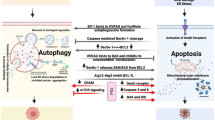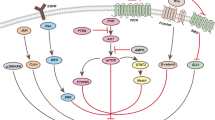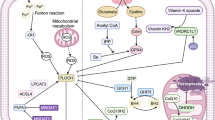Abstract
Purpose of Review
In this review, we describe a role of marine natural products in induction and inhibition of autophagy linked to cancers.
Recent Findings
Some of the compounds from marine organism showed ability to induce autophagy that directs death in cancer cells, as well as some of the others might prevent pro-survival autophagy process. The marine products could regulate various autophagy genes, ranging from upstream such as SIRT1 until to the downstream gene in the pathway. In general, marine natural products induce autophagy through the endoplasmic reticulum stress, PI3K /Akt/ mTOR, and p53 signaling. It is even more interesting that the marine compounds are also able to inhibit pro-survival autophagy, for example, polyphenol from Spatoglossum asperum. However, the antilogy should be kept in mind that a small number of marine compounds are known to induce pro-survival autophagy in cancer cells.
Summary
Marine life represents more than a half of the world biodiversity and offers a great source of bioactive compounds as drug candidates, including anti-cancer. Nowadays, autophagy has become one of primarily interesting topics in cancer research. Dysregulation of autophagy has been linked to several diseases, predominantly in cancer. There is paradox regarding the role of autophagy in cancer where autophagy can either lead to tumor promotion or suppression. This review showed that some of the marine natural product have activity to induce autophagy that may link to cell death or survival process. Thereof, better understanding on autophagic signaling in tumor cells upon various bioactive compounds from marine organisms is needed to ensure their potential chemotherapeutic tools against human cancers.



Similar content being viewed by others
References
Singh S, Sharma B, Kanwar SS, Kumar A. Lead phytochemicals for anticancer drug development. Front Plant Sci. 2016;7:1–13.
Suleria HAR, Osborne S, Masci P, Gobe G. Marine-based nutraceuticals: an innovative trend in the food and supplement industries. Mar Drugs. 2015;13:6336–51.
Hussain MS, Fareed S, Ansari S, Khan MS. Marine natural products: a lead for anti-cancer. Indian J Mar Sci. 2012;41:891–903.
Wargasetia TL, Widodo. Mechanisms of cancer cell killing by sea cucumber-derived compounds. Investig New Drugs. 2017;35:820–6.
Li X, Xu HL, Liu YX, An N, Zhao S, Bao JK. Autophagy modulation as a target for anticancer drug discovery. Acta Pharmacol Sin. 2013;34:612–24.
Akl MR, Ayoub NM, Ebrahim HY, Mohyeldin MM, Orabi KY, Foudah AI, et al. Araguspongine C induces autophagic death in breast cancer cells through suppression of c-Met and HER2 receptor tyrosine kinase signaling. Mar Drugs. 2015;13:288–311.
Forestieri R, Donohue E, Balgi A, Roberge M, Andersen RJ. Synthesis of clionamine B, an autophagy stimulating aminosteroid isolated from the sponge Cliona celata. Org Lett. 2013;15:3918–21.
Ruocco N, Costantini S, Costantini M. Blue-print autophagy: potential for cancer treatment. Mar Drugs. 2016;14:1–17.
Li D, Guo J, Huang J, Wang L, Deng R, Liu J, et al. Rhabdastrellic acid-A induced autophagy-associated cell death through blocking Akt pathway in human cancer cells. PLoS One. 2010;5(8):e12176.
Choi K, Lim HK, Oh SR, Chung WH, Jung J. Anticancer effects of the marine sponge Lipastrotethya sp. extract on wild-type and p53 knockout HCT116 cells. Evid Based Complement Alternat Med. 2017;2017:7174858.
Yang S, Wang X, Contino G, Yang S, Wang X, Contino G, et al. Pancreatic cancers require autophagy for tumor growth. Genes Dev. 2011;25(7):717–29.
Wargasetia TL, Nurhalim Shahib M, Martaadisoebrata D, Dhianawaty D, Hernowo B. Characterization of apoptosis and autophagy through Bcl-2 and Beclin-1 immunoexpression in gestational trophoblastic disease. Iran J Reprod Med. 2015;13:413–20.
Wu S, Sung P, Chang Y, Pan S, Teng C. Heteronemin, a spongean sesterterpene, induces cell apoptosis and autophagy in human renal carcinoma cells. Biomed Res Int. 2015;2015:738241.
Kogel D. The head of Janus: exploiting autophagy for cancer therapy. J Dev Drugs. 2012;01:4172.
Booth LA, Tavallai S, Hamed HA, Cruickshanks N, Dent P. The role of cell signalling in the crosstalk between autophagy and apoptosis. Cell Signal. 2013;26:549–55.
Gordy C, He YW. The crosstalk between autophagy and apoptosis: where does this lead? Protein and Cell. 2012;3:17–27.
Dyshlovoy SA, Madanchi R, Hauschild J, Otte K, Alsdorf WH, Schumacher U, et al. The marine triterpene glycoside frondoside A induces p53-independent apoptosis and inhibits autophagy in urothelial carcinoma cells. BMC Cancer. 2017;17:1–10.
Galluzzi L, San Pedro JMB, Levine B, Green DR, Kroemer G. Pharmacological modulation of autophagy: therapeutic potential and persisting obstacles. Nat Rev Drug Discov. 2017;16:487–511.
Aravindan S, Ramraj SK, Somasundaram ST, Aravindan N. Novel adjuvants from seaweed impede autophagy signaling in therapy-resistant residual pancreatic cancer. J Biomed Sci. 2015;22:1–17.
Lee HY, Chung K, Hwang I, Gwak J, Park S, Ju B, et al. Activation of p53 with ilimaquinone and ethylsmenoquinone, marine sponge metabolites, induces apoptosis and autophagy in colon cancer cells. Mar Drugs. 2015;13:543–57.
Shin YS, Cha HY, Lee BS, Kang SU, Hwang HS, Kwon HC, et al. Anti-cancer effect of luminacin, a marine microbial extract, in head and neck squamous cell carcinoma progression via autophagic cell death. Cancer Res Treat. 2016;48:738–52.
Paul S, Kundu R. Antiproliferative activity of methanolic extracts from two green algae, Enteromorpha intestinalis and Rizoclonium riparium on HeLa cells. DARU, J Pharm Sci. 2013;21:1–12.
Dyshlovoy SA, Hauschild J, Amann K, Tabakmakher KM, Venz S, Walther R, et al. Marine alkaloid monanchocidin a overcomes drug resistance by induction of autophagy and lysosomal membrane permeabilization. Oncotarget. 2015;6:17328–41.
Russo GL, Russo M, Castellano I, Napolitano A, Palumbo A. Ovothiol isolated from sea urchin oocytes induces autophagy in the Hep-G2 cell line. Mar Drugs. 2014;12:4069–85.
Kanno SI, Yomogida S, Tomizawa A, Yamazaki H, Ukai K, Mangindaan REP, et al. Papuamine causes autophagy following the reduction of cell survival through mitochondrial damage and JNK activation in MCF-7 human breast cancer cells. Int J Oncol. 2013;43:1413–9.
Park S-J, Ryu J, Kim I-H, Choi Y-H, Nam T-J. Activation of the mTOR signaling pathway in breast cancer MCF-7 cells by a peptide derived from Porphyra yezoensis. Oncol Rep. 2015;33:19–24.
Liao G, Gao B, Gao Y, Yang X, Cheng X, Ou Y, et al. Phycocyanin inhibits tumorigenic potential of pancreatic cancer cells: role of apoptosis and autophagy. Sci Rep. 2016;6:1–12.
Zhu K, Dunner K, McConkey DJ. Proteasome inhibitors activate autophagy as a cytoprotective response in human prostate cancer cells. Oncogene. 2010;29:451–62.
Trzoss L, Fukuda T, Costa-Lotufo LV, Jimenez P, la Clair JJ, Fenical W. Seriniquinone, a selective anticancer agent, induces cell death by autophagocytosis, targeting the cancer-protective protein dermcidin. Proc Natl Acad Sci. 2014;111:14687–92.
Liu WK, Ling YH, Cheung FW, Chen CT. Stellettin A induces endoplasmic reticulum stress in murine B16 melanoma cells. J Nat Prod. 2012;75:586–90.
Kundu S, Kim TH, Yoon JH, Shin H-S, Lee J, Jung JH, et al. Viriditoxin regulates apoptosis and autophagy via mitotic catastrophe and microtubule formation in human prostate cancer cells. Int J Oncol. 2014;45:2331–40.
Guimarães LA, Jimenez PC, Sousa TDS, Freitas HPS, Rocha DD, Wilke DV, et al. Chromomycin A2 induces autophagy in melanoma cells. Marine Drugs. 2014;12:5839–55.
Hau AM, Greenwood JA, Löhr CV, Serrill JD, Proteau PJ, Ganley IG, et al. Coibamide A induces mTOR-independent autophagy and cell death in human glioblastoma cells. PLoS One. 2013;8(6):e65250.
Hou L, Gao C, Chen L, Hu G, Xie S. Essential role of autophagy in fucoxanthin-induced cytotoxicity to human epithelial cervical cancer HeLa cells. Acta Pharmacol Sin. 2013;34:1403–10.
Zhao Y, Chen H, Shang Z, Jiao B, Yuan B, Sun W, et al. SD118-xanthocillin X (1), a novel marine agent extracted from Penicillium commune, induces autophagy through the inhibition of the MEK/ERK pathway. Mar Drugs. 2012;10:1345–59.
Wang R, Zhang Q, Peng X, Zhou C, Zhong Y, Chen X, et al. Stellettin B induces G1 arrest, apoptosis and autophagy in human non-small cell lung cancer A549 cells via blocking PI3K/Akt/mTOR pathway. Sci Rep. 2016;6:1–10.
Ratovitski EA. Tumor Protein (TP)-p53 members as regulators of autophagy in tumor cells upon marine drug exposure. Marine Drugs. 2016;14(8).
Kim TH, Kim HS, Kang YJ, Yoon S, Lee J, Choi WS, et al. Psammaplin A induces Sirtuin 1-dependent autophagic cell death in doxorubicin-resistant MCF-7/adr human breast cancer cells and xenografts. Biochim Biophys Acta. 2015;1850:401–10.
Geisen U, Zenthoefer M, Peipp M, Kerber J, Plenge J, Managò A, et al. Molecular mechanisms by which a Fucus vesiculosus extract mediates cell cycle inhibition and cell death in pancreatic cancer cells. Mar Drugs. 2015;13:4470–91.
Kallifatidis G, Hoepfner D, Jaeg T, Guzmán EA, Wright AE. The marine natural product manzamine a targets vacuolar atpases and inhibits autophagy in pancreatic cancer cells. Mar Drugs. 2013;11:3500–16.
New M, Van Acker T, Long JS, Sakamaki J, Ryan KM, Tooze SA. Molecular pathways controlling autophagy in pancreatic cancer. Front Oncol. 2017;7:1–11.
Yang A, Herter-Sprie G, Zhang H, Lin EY, Biancur D, Wang X, et al. Autophagy sustains pancreatic cancer growth through both cell autonomous and non-autonomous mechanisms. Cancer Discov. 2018;8(3):276-87.
Wang N, Feng Y. Elaborating the role of natural products-induced autophagy in cancer treatment: achievements and artifacts in the state of the art. Biomed Res Int. 2015;2015:934207.
Yang F, Chen WD, Deng R, Li DD, Wu KW, Feng GK, et al. Hirsutanol A induces apoptosis and autophagy via reactive oxygen species accumulation in breast cancer MCF-7 cells. J Pharmacol Sci. 2012;119:214–20.
Acknowledgments
This work supported by Postdoctoral Research Scheme 2018 through the Ministry of Research, Technology, and Higher Education of Republic of Indonesia’s research fund.
Author information
Authors and Affiliations
Corresponding authors
Ethics declarations
Human and Animal Rights and Informed Consent
This article does not contain any studies with human or animal subjects performed by any of the authors.
Additional information
Publisher’s Note
Springer Nature remains neutral with regard to jurisdictional claims in published maps and institutional affiliations.
This article is part of the Topical Collection on Cancer Chemoprevention
Rights and permissions
About this article
Cite this article
Wargasetia, T.L., Widodo, N. The Link of Marine Products with Autophagy-Associated Cell Death in Cancer Cell. Curr Pharmacol Rep 5, 35–42 (2019). https://doi.org/10.1007/s40495-019-00167-8
Published:
Issue Date:
DOI: https://doi.org/10.1007/s40495-019-00167-8




